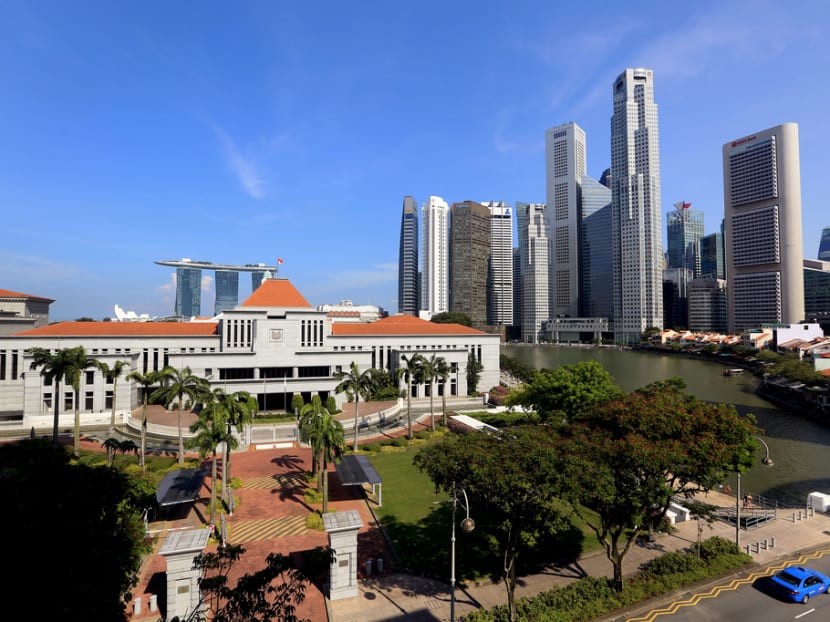Budget 2018: What the analysts are saying
GST to go up to 9% sometime between 2021 and 2025
"Whenever the public hear of a GST hike, they think that the Government is trying to take away their money. But by giving a time frame, the Government is sending a signal that it will raise revenue only when it needs it. And in this case, it doesn't need the revenue now but later for long-term planning. And by announcing the hike before the General Election shows that the Government does not engage in populist politics and has to do what is right for the future of the economy."
- CIMB Private Banking economist Song Seng Wun
“The early announcement of revenue raising measures, such as the increase of GST to 9 per cent and the introduction of an e-commerce services tax by 2020, to address the three major shifts (rise of Asia, emerging technologies and ageing population) mentioned by Finance Minister (Heng Swee Keat), will give people and businesses time to make the necessary adjustment."
- Mr Chiu Wu Hong, Head of Tax at KPMG in Singapore
"The Budget is to meet Singapore’s long-term challenges. It is a well-considered and visionary Budget. We welcome it. It is in businesses’ interests to leverage the Budget measures to transform and ride on the anticipated growth momentum, given the more positive business sentiments both in Singapore and in the region. We acknowledge the reason behind the increase in GST and appreciate the advance notice for businesses to plan ahead."
- Mr Teo Siong Seng, Singapore Business Federation chairman
"Singapore’s GST rate is low compared with some regional peers’. Unlike the CIT, there is no competitive pressure. More importantly, the GST is perhaps the most direct and effective tool in terms of raising tax revenue. Notwithstanding the regressive nature of the GST, it is perhaps the most direct and effective tool in terms of raising tax revenue. It has a relatively broader tax base and it is also the second-largest source of revenue, just behind the CIT. Hence a 2%-pt hike in GST rate go some way in ensuring longer term fiscal sustainability."
-Mr Irvin Seah, DBS senior economist
“This is a good way to release the stress on (the Government’s coffers), amid demographic pressures and an expected fall in revenue from personal income taxes."
-Mr Francis Tan, an economist with the United Overseas Bank
Digital services to be taxed from 2020
"The introduction of the e-commerce tax will make Singapore the first country in South East Asia to introduce a tax on the digital economy. This is likely to be followed by Thailand, Malaysia and Indonesia, which are already considering such a tax."
– Mr Koh Soo How, Asia Pacific Indirect Tax Leader, PwC Singapore
“The implementation of GST for imported services aligns our GST framework with those of other countries. It places local and overseas service providers on a level playing field but translates to higher cost for local consumers."
- Ms Gan Hwee Leng, Tax Partner at KPMG in Singapore
“GST will also be introduced on digital services purchased from overseas suppliers in 2020. This will help level the playing field for local businesses supplying digital services to local consumers, since they currently charged GST if they are registered.”
-Richard Mackender, Tax Partner and Indirect Tax Leader at Deloitte Singapore and Southeast Asia
Higher Buyer’s Stamp Duty for residential properties valued above S$1m
"The increase in Buyer’s Stamp Duty (BSD) to 4 per cent for properties with a value of more than 1 million is not expected to have a substantial cooling effect on property demand. Given the heightened interest in residential market, the government has timed the increase of the BSD well, as prices and transaction volumes could return in vengeance after the Chinese New Year with more new launches in the pipeline."
- Ms Christine Li, head of research at Cushman & Wakefield Singapore
“The introduction of the new top marginal rate of 4% for Buyer’s Stamp Duty for residential property applicable to market value in excess of $1 million, was unexpected in view that recovery in the residential property market has only recently started. Although the middle income group will be impacted, we believe that the carefully calibrated adjustment in the rate should not significantly dampen the housing market.”
-Ms Shantini Ramachandra, Tax Partner and Deloitte Private (Tax) Leader for Singapore and Southeast Asia
Carbon tax set at S$5 per tonne for first five years
"In sharing the longer term view to raise the tax from $5 per tonne of emission to $10-$15 per tonne emission, the Government is sending a strong message to gas emitters to convert to energy efficient alternatives to reduce their carbon footprint. Not surprisingly, there will be funding to support the companies to make this change and increases in U-save to help households defray the new tax which will be passed on to them as consumers."
- Ms Elaine Ng, Transport and Logistics Tax Leader, PwC Singapore
"However, businesses, especially our SMEs, affected by the carbon tax immediately from 2019 will need government’s grant support to improve their energy efficiency to help mitigate the impact."
-Singapore Chinese Chamber of Commerce & Industry President Roland Ng
“As Singapore innovates its economy and build a smart nation, we must not forget the environment in which we live in. As global warming is set to rise even further in future, the carbon tax introduced from FY 2019 will certainly help curb carbon emission and tackle climate change.”
- Mr Ng Kian Hui, Partner, and Head of Audit & Assurance, BDO LLP







